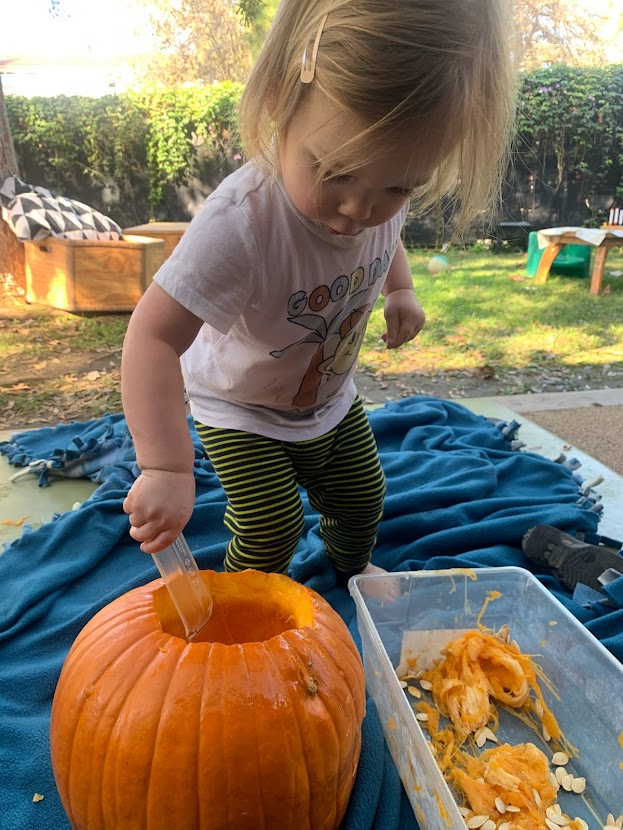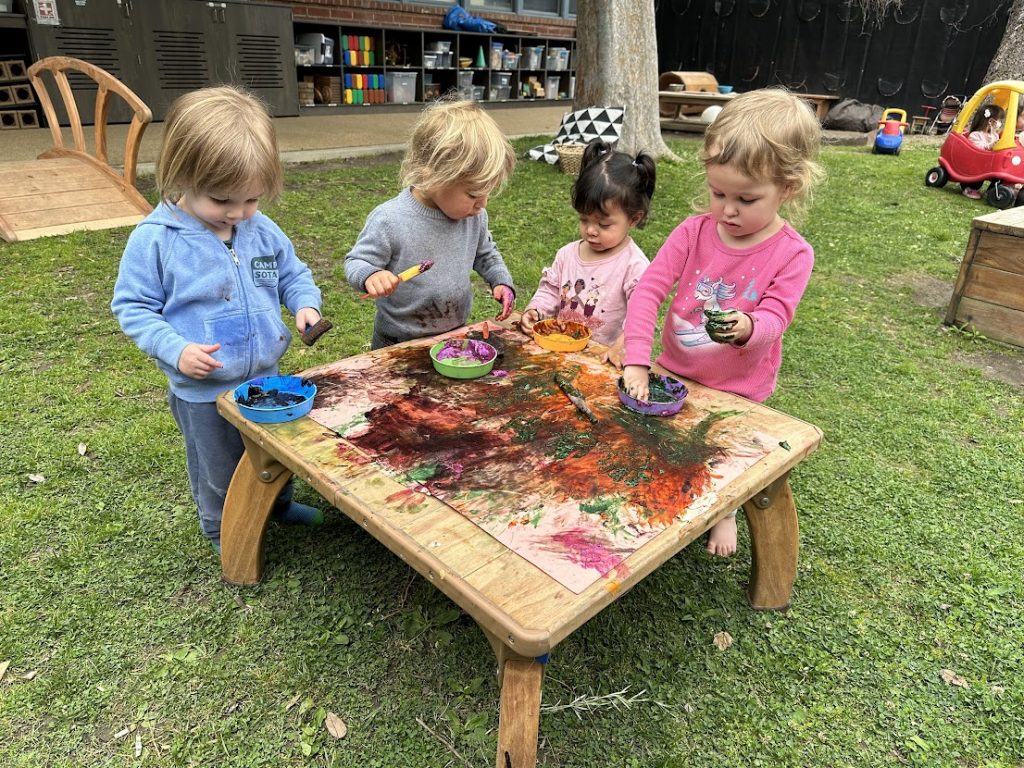
What do young infants do at IDP?
As a primary objective, young infants at IDP learn to build close, secure relationships with one or more caregivers. The security of these relationships provide the foundation of trust and confidence which encourage the child to engage in daily activities. The young infant curriculum includes reading, singing, music, conversation, various sensory experiences, and interactions with natural elements. Young infants at IDP follow individual, natural patterns for eating and sleeping. The children are exposed to language through stories, songs, chants, and conversation. Toys are easily manipulated and mouthed, and disinfected after each use.
What do mobile infants do at IDP?
Mobile infants build upon the rapidly changing developmental milestones which took place in young infancy. The close relationships with caregivers which were started in young infancy are cultivated and further nurtured. As their physical strength increases, mobile infants develop confidence in their abilities and feel comfortable exploring to a greater degree. Teachers continue to support and encourage developing physical abilities while providing an environment that is physically and psychologically safe for exploring children. Teachers provide physical support for each child’s level of physical development while mobile infants are encouraged to practice their developing gross motor skills such as sitting, pulling up, and cruising. Mobile infants experiment with different art and sensory materials such as paint, glue, salt, play dough, etc. With guidance from teachers, mobile infants learn to interact with their peers. Individual routines such as eating and sleeping may be modified to meet each child’s changing developmental needs.


What do older infants/toddlers do at IDP?
Older infants are encouraged to further develop their cognitive and physical abilities. They learn to become socially competent and emotionally secure. Toddlers are encouraged to identify, explore, and express their feelings, which are validated by teachers. Teachers respect older infants’ need to experiment with independence while still remaining dependent on their caregivers. A sense of control, predictability, and consistency in setting limits help older infants feel that they can master their environment. Older infants at IDP are provided with opportunities to meet their unique developmental needs and abilities: sleeping on cots with peers, participating in developmentally appropriate “toddler curriculum” activities (e.g., science, cooking, visits to the library), chances for imaginary play, etc.
